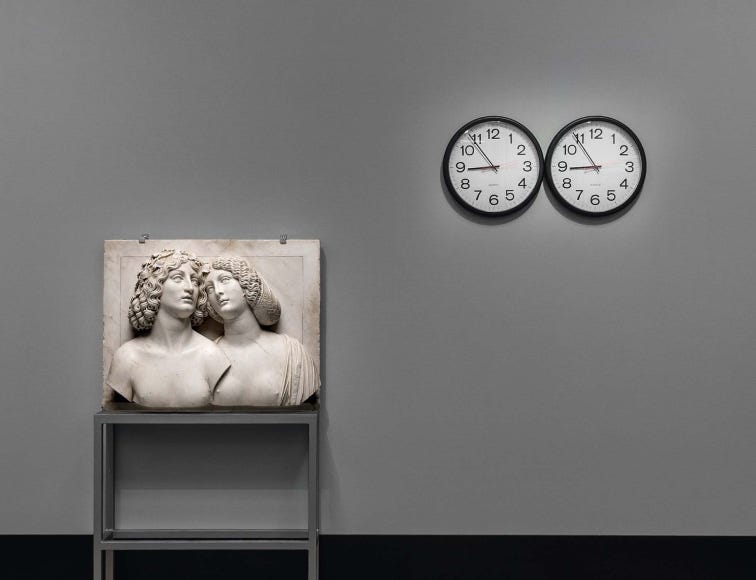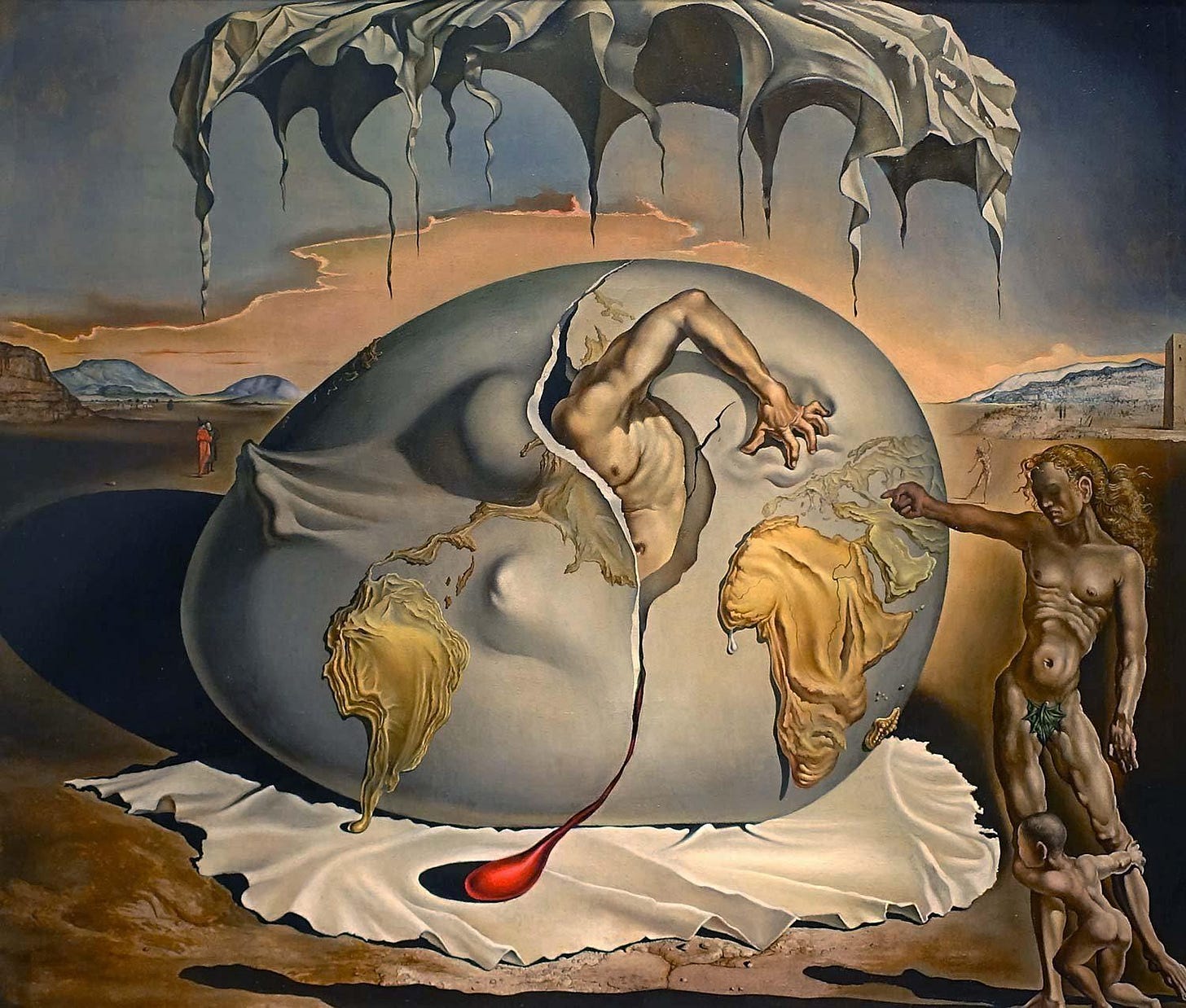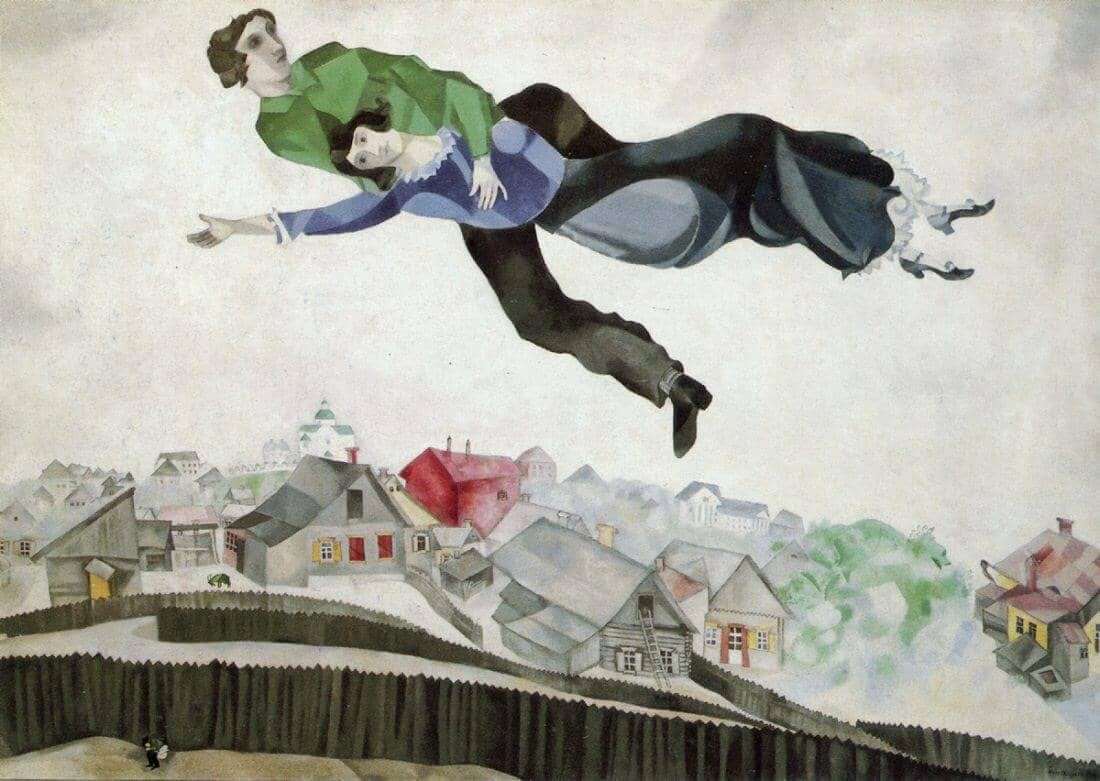Why do I feel like I'm only whole when I'm loved by someone else?
For those who wonder why love feels like the missing piece.
Two clocks, side by side, ticking in perfect synchrony. They are simple, wall-mounted, ordinary. But they are also unbearable.
Because one of them, one day, will fall out of sync. The battery will falter. The mechanism will slip. One will keep going; one won’t. And what we are left with is not melodrama. We are left with time continuing, but no longer shared.
This is Untitled (Perfect Lovers) by Felix Gonzales-Torres. It’s an art piece that speaks of love through silence and symmetry. And the longer we stand in front of it, the more uncomfortable we become, because it shows us something we don’t want to admit: that even in our most intimate moments, we are always, inevitably, alone. That love — even perfect love — cannot save us from time. It can only mark it more beautifully.
So why, then, do we sometimes feel incomplete without it?
The first answer is obvious. We are social creatures and therefore wired for connection. From the moment we are born, we are shaped by touch, voice, presence. We are soothed by eye contact, grounded by proximity. Entire bodies of research — from Bowlby’s attachment theory to contemporary neuroscience — show that we regulate our nervous systems through intimacy. Love doesn’t just feel good; it stabilises us.
But that’s not really what we’re asking here.
We’re not asking, Why do we want love?
We’re asking, Why do we feel less without it?
Why does our sense of self feel provisional until someone else comes along and sees us, holds us, calls us theirs? To answer this, we must turn to Simone Weil.
Here, Weil is telling us something devastating in its truth: that much of what we call love is projection. We don’t see the person; we see what we want them to be. We love the symbol of them, and in doing so, we do not love — we possess. We soil. We confuse connection with control. We want to hold the person not to cherish them, but to stabilise ourselves.
Weil says that to love purely is to consent to distance, which means to adore the space between two people, not in spite of it, but because of it. And that is precisely what most of us cannot do, because to consent to distance means we must resist the pull of possession, and possession is seductive. It gives the illusion of certainty in a world that offers so little of it. The moment someone chooses us, names us, wants us — we feel real. Tethered. Momentarily immune to time.
But this is where we must be honest: for many of us, love becomes not a relationship, but a strategy. A way to stabilise identity. We don’t love them; we love who we are when we are with them. It is one way of confronting the ever-insoluble question of if and how we matter.
You see, we don’t seek love because we are brimming with abundance. We seek love because we are haunted by fragmentation. And this need for confirmation is a survival strategy deriving from the earliest human template — I am because you respond to me. It’s developmental psychology. It’s object-relations theory. It’s Winnicot and Bowlby and Erikson, each in their own way telling us that we learn who we are through the eyes of the other.
But the problem is that we carry that pattern forward. By adulthood, many of us are still outsourcing the stability of our identity. Not to parents this time, but to lovers. Thus what begins as intimacy curdles into dependency, into fusion.
And fusion feels good — until it doesn’t.
Our clinging to fusion is a refusal of separateness. And separateness is terrifying because it forces us to accept that our existence is singular, non-repeatable, and ultimately finite. Martin Buber, in I and Thou, tried to show the sacredness of meeting another without turning them into a function of our needs. He writes:
Here, he is describing the way we often move through the world: acting on things, thinking about things, feeling toward things. In this mode, the world is made up of objects — bounded, useful, observable. And people, too, become objects. They become things to desire, to manage, to decode, to hold. Relationships become verbs with outcomes: I want, I take, I miss, I lose. Even love becomes something we do to someone, rather than with them.
This is the I-it world. It’s not wrong; it’s necessary. We need to function. We need to do and make and analyse and survive. But Buber says: this is not enough.
This is harder to grasp, because it points to an experience, not a concept. To speak Thou is not to analyse or to use. It is to encounter. Fully. Without agenda. Without boundary. Without turning the other into a “thing” that satisfies or disappoints. When we meet someone as Thou, we are no longer trying to complete ourselves through them.
And this matters politically too, because cultures of consumption train us to fill every lack. Every absence is a market opportunity. You are made to feel incomplete not just romantically but existentially, so that you will keep seeking, buying, attaching. Wholeness becomes a product, not a process.
Which brings us back to theology. What Weil offers us is not just a psychological vision but a metaphysical one. To love purely, she says, is to consent to distance. Not because we are meant to be distant from each other, but because distance is the only space in which love can remain unpolluted by ego.
To touch, to own, to modify — these are not acts of love. They are acts of the will. Love is an act of attention. The kind that does not seek to collapse the distance, but to hold it open as sacred.
And that brings us to a quieter truth.
What if the desire to be completed by love is not wrong, but misdirected?
What if the feeling of being incomplete without someone else is a misunderstood hunger — not for another person, but for coherence? What if we are, in fact, yearning for the experience of being fully met, not just in body or affection, but in essence? To be known and left untouched. To be understood without being interfered with.
That’s rare. And when we don’t find it in ourselves, we go looking for it in others.
But here’s the shift: when we begin to cultivate the internal conditions of Being-with — what Buber called our ability to remain present to our own strangeness, our own contradictions, our own silence — we start to build the inner architectures that love can later inhabit. Not fill. Not fix. But share space with.
In other words, wholeness is not a precondition for love. But neither is love a shortcut to wholeness.
We must become the kind of person who can live with incompleteness without demanding that another person complete us. And paradoxically, in doing so, we become someone capable of deeper love. Of non-fusional love. Of the kind of love that Weil hints at — the love that adores the distance, not as absence, but as the space where freedom breeds reverence.
So, what does this mean practically?
It means we have to get comfortable with the ache. To stop fleeing into romance every time we feel lonely. To notice the stories we tell ourselves about why love will make it all better. To interrogate the fantasy, not because it’s childish but because it’s precious — and all precious things deserve to be met with truth.
It means we need to build a life that feels meaningful before someone else enters it — so that we can invite someone into something real, not a void.
And it means we begin to imagine a new kind of love. Not a solution. Not a balm. But a witness. A companion. Someone who sees the fractured, luminous mosaic of all that we are, and chooses, every day, not to complete it but to sit beside it and let it be.
That’s what we’re really looking for. Not completion, but confirmation of what we already are. Not to be made whole, but to be met — incomplete, in process, and still worth loving.
Love,
Your friend from afar.











This stopped me in my tracks and made me think twice about reaching out to someone who I shouldn't. I shouldn't, because of all the reasons you've so well articulated. Thank you 💗
this is so eye-opening—the extract you provided is so insightful and definitely provided a new perspective i have not explored before! thank you for such a beautiful and profound work!